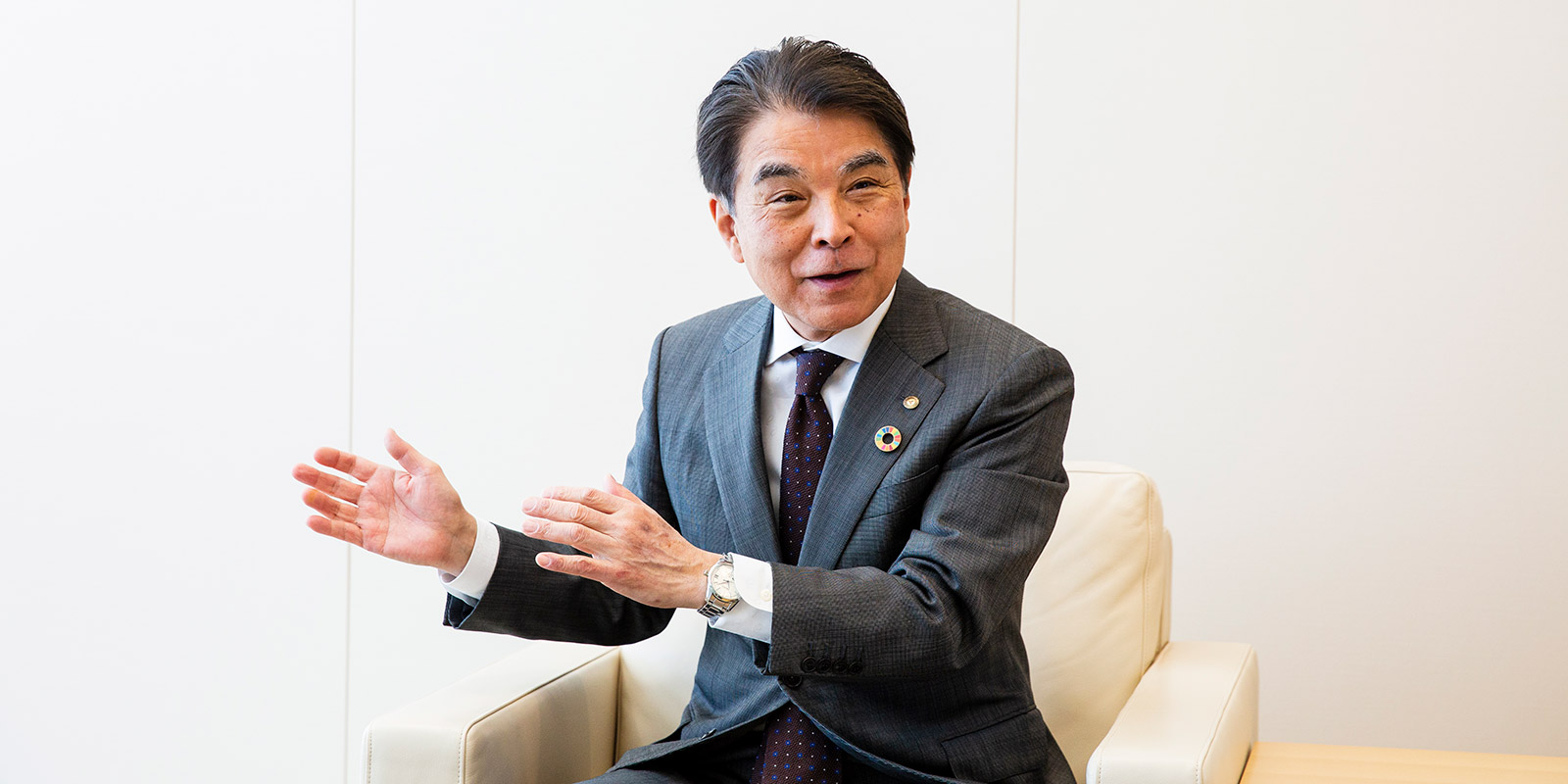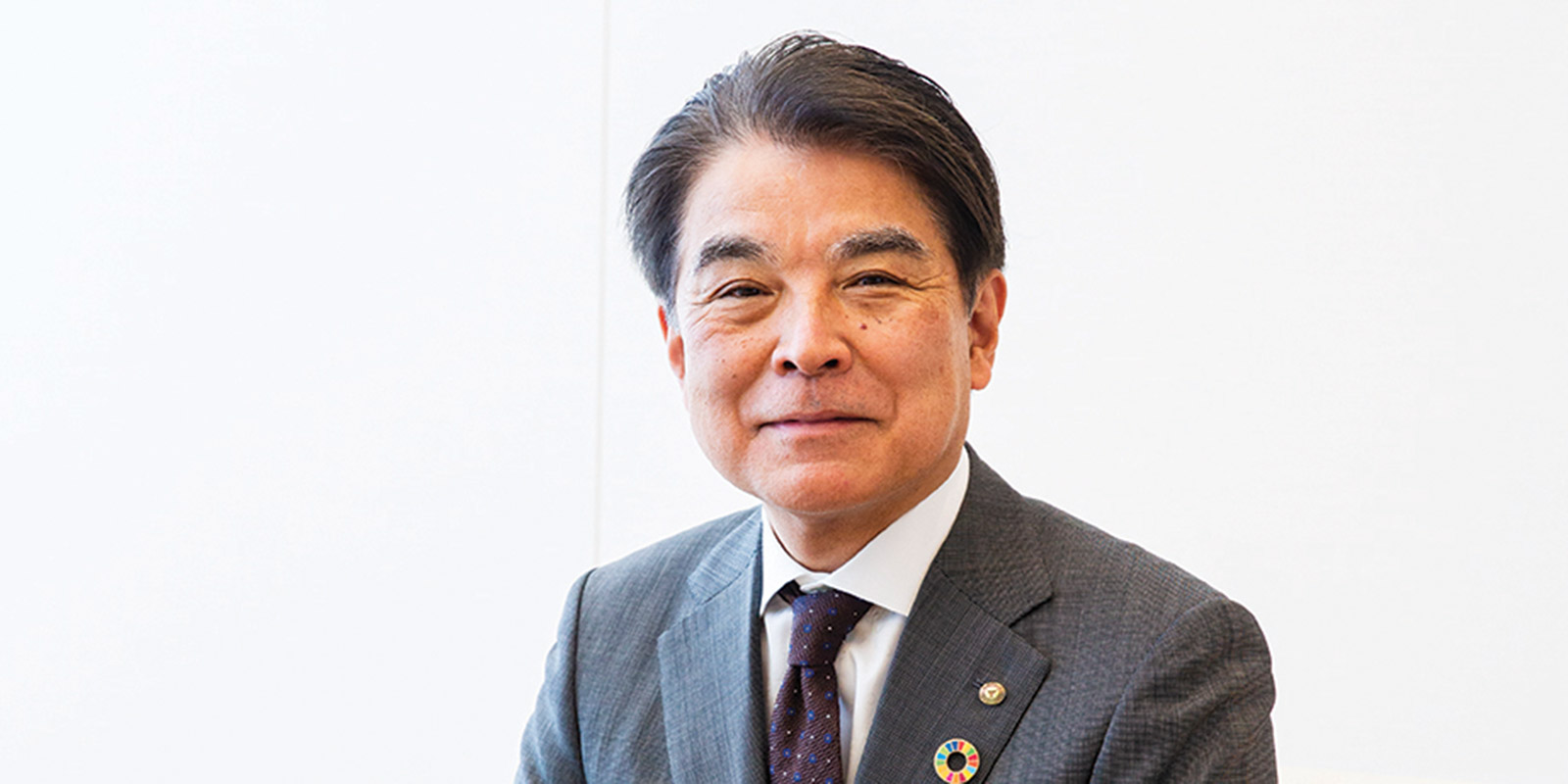Wind of change
Masashi Okada, CEO of Tokyu Land, talks to Ili Saarinen about why a company known for real estate moved into renewable energy—and why a focus on sustainability is good for both business and the planet
Tokyu Land’s main business is real estate. Why did you expand into renewable energy?
We launched our renewable energy business in 2014, working on the premise that we could help Japan become more self-sufficient in terms of energy and reduce CO2 emissions, thereby making a social contribution. It was also attractive to us in a business sense, which isn’t always the case with initiatives that contribute to the greater good. While the real estate business is susceptible to economic fluctuations, since land prices go up and down, the relative stability of the renewable energy business made it an attractive addition to our portfolio. The knowhow Tokyu Land has accumulated in real estate has proven useful in our move into renewable energy. For example, both fields involve procedures like negotiating with landowners, acquiring approval from local authorities, and bidding for public works projects.
How are the energy business’s prospects?
I’m feeling positive. We currently have 79 power plants throughout the country with a total capacity of 1,300 megawatts, including plants still under construction. Compared to other players in the field, that is a significant number and makes us one of the leaders. There is no shortage of companies entering the renewable energy business, but I’m confident we can retain our position. Solar and wind power are our staples at the moment. We have solar power plants from Hokkaido in the north to Kagoshima in the south, and wind power plants in Hokkaido and Shizuoka Prefecture. Solar is most effective in good weather, while the wind tends to be calmer on such days. In contrast, wind power shines on stormy days, when there’s little sunshine – so they complement each other. We are working on starting up our first biomass plant this spring in Yonago, Tottori Prefecture, and we’re also looking into expanding into offshore wind power in the future.
 Masashi Okada | Keisuke Tanigawa
Masashi Okada | Keisuke Tanigawa
What are your goals in green energy?
“It is better to pursue a system of local production for local consumption, and I hope to be able to contribute to that”
Until recently, rural areas were expected to provide energy to be consumed by cities, but the problems with that model surfaced after the Tohoku earthquake and tsunami of March 2011. I hope to see a reorientation in the balance of power between rural and urban areas. Transporting energy from the countryside to the cities is also inefficient in terms of transmission, and requires significant infrastructure investments. It is better to pursue a system of local production for local consumption, and I hope to be able to contribute to that. For example, we’ve signed an agreement with Matsumae, Hokkaido, where we have a 40-megawatt wind power plant. The local government is eager to use wind power as a way to revitalize the town’s economy, since the population is decreasing and fishing, traditionally the primary industry there, is in decline. The town’s strong winds can be turned into an economic resource.
“It is better to pursue a system of local production for local consumption, and I hope to be able to contribute to that”
What makes a city sustainable?
In a word, diversity. In the past, cities were evaluated based mainly on efficiency, with specific functions concentrated in specific parts to achieve maximum efficiency. But that doesn’t further sustainability, which is about having all sorts of people living, working, and enjoying themselves in the same place. Diversity also encompasses diverse forms of energy production, not only fossil fuels. Without diversity, cities don’t evolve or change, nor do they give birth to new ideas. Shibuya, where we are based and have a variety of projects, is a great example of a very diverse place. The same is true for companies, which need diversity to evolve and improve.
 Masashi Okada | Keisuke Tanigawa
Masashi Okada | Keisuke Tanigawa
“The renewable energy business is on its way to becoming a core part of our business. I hope to double our number of power plants over the next five years”
What are your goals for the near future, with regard to both renewable energy and other areas of the business?
The renewable energy business is on its way to becoming a core part of our business. I hope to double our number of power plants over the next five years, investing at least ¥250 billion over that period. We are aiming to become an environmental leader, not only by growing the renewable energy business but also by incorporating environmental considerations throughout our business, be it in housing or office buildings. The aim is to create environmentally forward-looking products, which will help us gain a competitive advantage.